What it's like to go to college on an esports scholarship
Balancing practice and matches with academics, combating toxicity, and explaining esports to parents and professors.
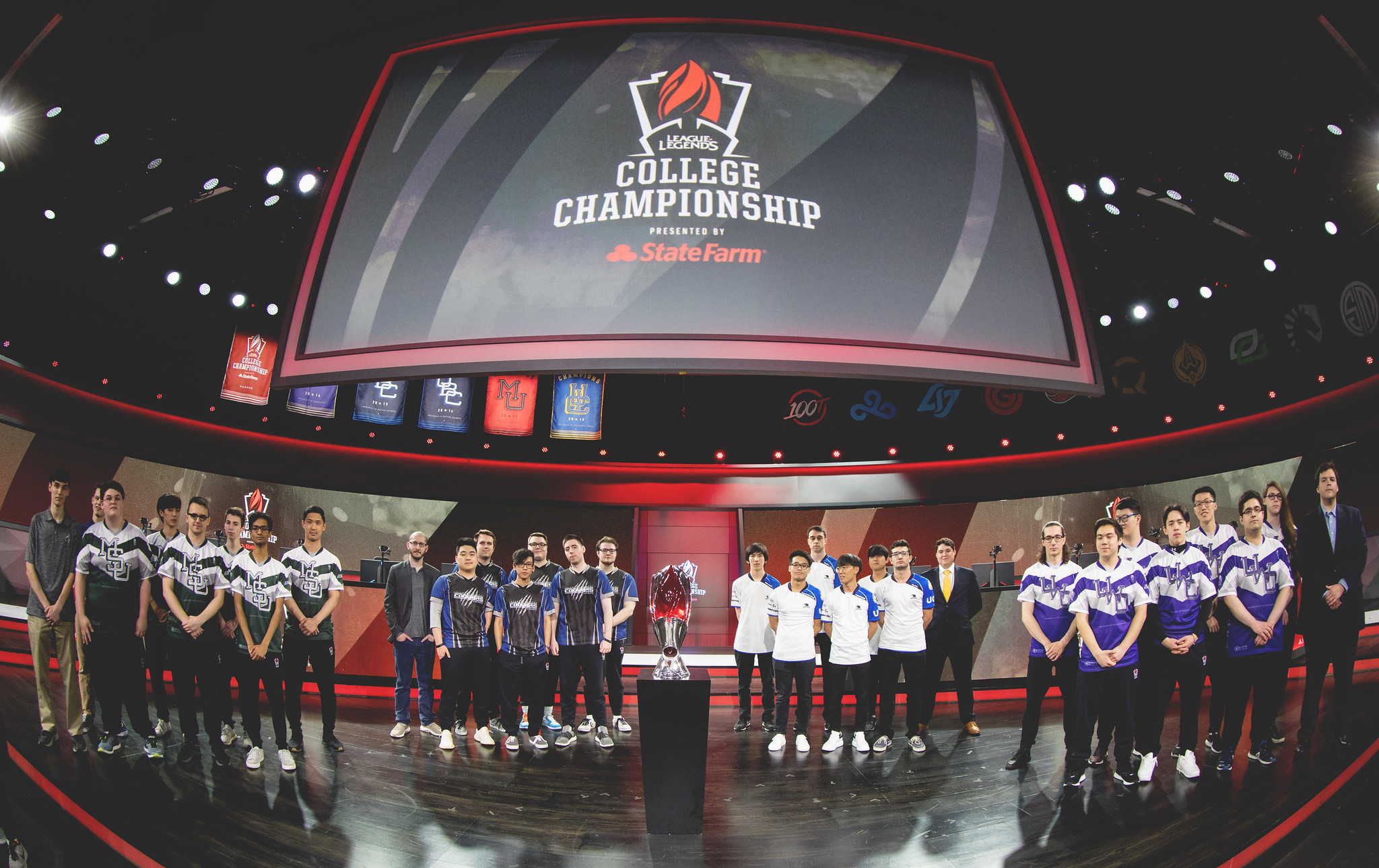
These days, instead of going to college to play traditional sports, you can play esports—and even get a scholarship to do so. Schools such as Robert Morris University, University of California Irvine, and UC Berkeley provide gamers the chance to pursue their passion beyond their high school bedrooms and potentially translate it into a career after graduation.
But collegiate esports don't yet have the massive support that traditional sports do. These students work just as hard as traditional college athletes, and are held to the same academic and ethical standards, but don't receive the same perks. Scholarships have fewer zeros. Priority registration is only a dream. A litany of barriers, including stereotypes and diversity issues, prevent esports programs from receiving full support from their universities.
As a result, collegiate esports programs have developed partnerships with game developers and sponsors in order to provide their students with practice space, equipment, jerseys, and access to coaches, team psychologists, and analysts. Things have come a long way in the last five years, but these programs are still fighting to be taken seriously so that they can not only provide the best educational experience for these students, but also positively influence the future esports landscape.
Esports players often aren't classified as athletes
Many universities are open to the idea of esports, but they have a difficult time grasping how a videogame could be formally competitive, or why esports can't be held to the same standards and practices as traditional sports.
Recently, the NCAA (National Collegiate Athletic Association) voted not to officially govern collegiate esports, leaving that domain to universities and independent organizations. It's a big reason why some collegiate esports programs, like those at UCI and Berkeley, are categorized under Student Affairs instead of Athletics. Esports are inherently different from traditional athletics, and so don't fit the mold of college basketball or football.
Esports players practice as much as traditional college athletes, sometimes up to six hours a day. They balance the same kind of hectic schedules as traditional athletes, but without some of the same perks.
Practices and matches don't have to be held in a single location, for instance, which is an NCAA requirement. Esports tournament winners also get prize money, something the NCAA forbids. The Department of Education also holds sports to a higher bar as far as creating equal opportunities and resources for women under Title IX regulations, and in some cases, a lack of diversity can prevent esports programs from being recognized by a university's athletics department.
That isn't true of UCI, nor UC Berkely and RMU, which do follow Title IX regulations. However, other regulatory requirements, such as when and where practices and matches occur, "don't apply to esports all the time," said Kathy Chiang, assistant director of esports at UCI.
Keep up to date with the most important stories and the best deals, as picked by the PC Gamer team.
And in terms of rigor, esports players practice as much as traditional college athletes, sometimes up to six hours a day. They balance the same kind of hectic schedules as traditional athletes, but without some of the same perks.
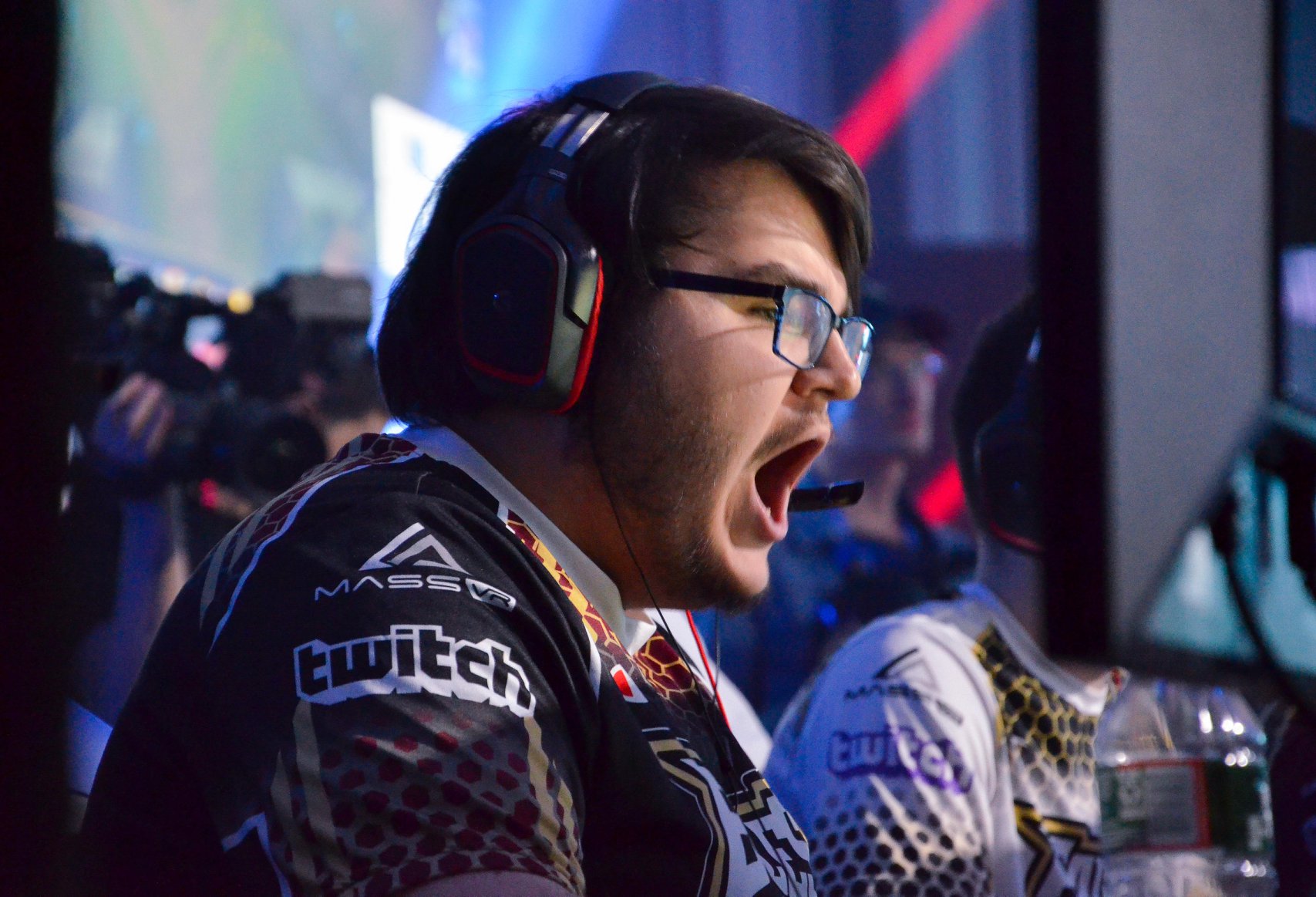
Grant Welling was the captain of RMU's junior varsity League of Legends team for the 2018-2019 school year. He had classes and practice four days a week, with three day weekends to catch up on homework and little down time.
Zuhair Taleb, who played Overwatch for UCI the same year, had a nearly identical schedule. "I don't go out—maybe I'll go out once every two weeks with my teammates, with my friends," he said. "I practice, I play, I scrim, I practice more, I scrim, and I study. That's my entire schedule. I barely have time for anything else."
"From a varsity programs perspective, our players don't have all the resources that our sports teams do at the moment," said UCI esports director Mark Deppe. "The biggest pain point is probably priority enrollment."
Students on sports scholarships generally receive first-pick when it comes to creating their class schedule so they can minimize conflicts with practices and game days. At UCI, and the majority of other colleges with esports programs, esports players don't have that luxury, because they aren't classified as athletes. They have to squeeze in practices when they can, most often during nights and weekends as opposed to during the day.
"It's a long battle with academic senate and campus leaders who are still warming up to the idea of esports," Deppe said, pointing out that there are a lot of faculty and other employees at UCI who do support the esports program. For those who have concerns, Deppe believes they have the university's best interest at heart.
"There's a lot of real critiques that games deserve, whether it's the hyper sexualization of women, or the lack of diversity on the teams," he said. "There are some things that deserve a critical look."
Not all programs are like that though. At RMU, esports is part of the athletics department and has been since the beginning, making it one of the few schools that treats esports players as student athletes. "[The athletics department] understands how much time, money, and effort is required to actually be successful, and when they recognized that back in 2014, they provided us with all the resources that we needed to be successful," said RMU esports executive director Michael Wisnios.
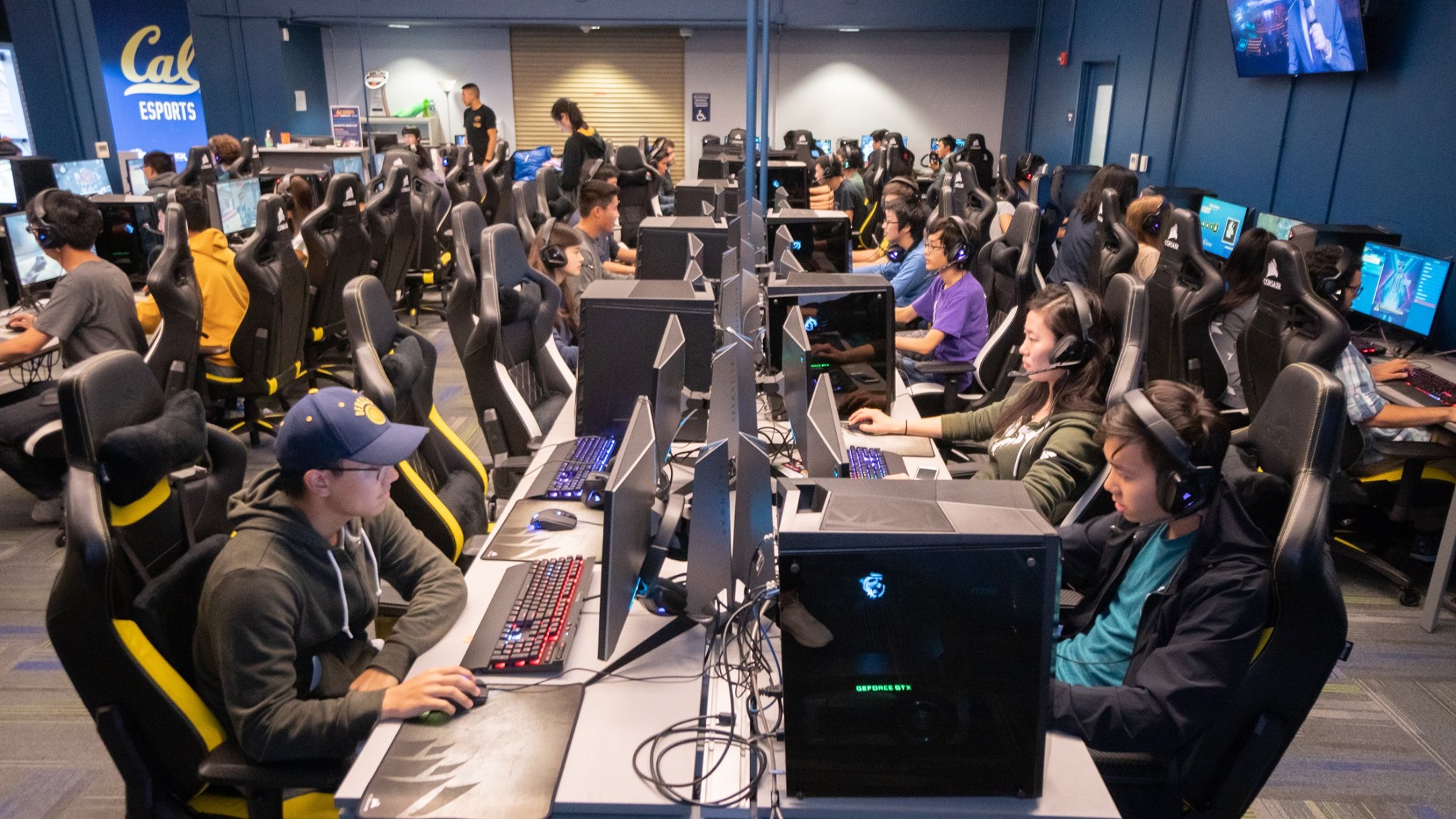
Money comes from the developers and sponsors
For colleges that have League of Legends, Hearthstone, Overwatch, and StarCraft II teams, scholarship money comes directly from the developers themselves, not the college. Tespa, for example, is a network of collegiate esports clubs that partners with Blizzard to provide scholarship opportunities for students who play on a Hearthstone, Overwatch, or StarCraft II team. Riot Games provides scholarship money directly to colleges that have competitive League of Legends teams.
Without developer funding, it would be nearly impossible for collegiate esports groups to offer students esports scholarships. This aspect of collegiate esports is not all that unusual, as many scholarships in general, both for sports and academics, also rely on recurring donations or partnerships with outside entities.
At UCI, scholarship recipients on varsity Overwatch and League of Legends teams receive $6,000, while junior varsity players receive $1,000 per semester. Additionally, UCI esports recently announced that it will offer $6,000 scholarships to Super Smash Bros. Ultimate players. Riot only officially partnered with Berkeley in the fall of 2018 to provide scholarships to its Division 1 League of Legends team, which gives each player $1,666. It's not much, but in a country where the cost of college tuition is ridiculously high, any little bit helps.
Winning collegiate championships also helps student players take a dent out of their college expenses. Grant Welling and the rest of his teammates on RMU's JV League of Legends team took home a $5,000 prize for winning the Collegiate Starleague Championship in May 2019. Berkeley's StarCraft II team won ESPN’s inaugural national Collegiate Esports Championship in May 2019 as well, and each player took home $1,000 in scholarship money. Should the Super Smash Bros. Ultimate team at UCI win at the Collegiate Starleague this school year, they will split a $15,000 prize.
When it comes to funding computer equipment and jerseys for the players to wear on game days, that's where sponsorships come in.
Without solid and consistent university funding, these esports programs are completely reliant on sponsors and developers to keep their esports programs alive.
"When we first opened our center, Nvidia put the PCs in," said Berkeley esports program manager Kevin Ponn. "We got 54 of them. And then Corsair came in with the keyboards, the mice, the headsets. Our sponsors have also invested into on-campus amenities, like women in gaming initiatives in an effort to connect industry experts with our female students."
UCI just recently outfitted its esports arena with new computers, all supplied by iBuyPower.
There's no guidebook for this, so depending on what is negotiated with the school, what department oversees the program, and where the program gets its scholarship and sponsorship money, there are going to be differences in every program—assuming the school wants to offer support at all. University of Toronto alumnus Ronald Ly, who is now head Overwatch coach at UCI, said that members of the esports program at his alma mater had to pay out of their own pocket for jerseys and peripherals.
Without consistent university funding, these esports programs are completely reliant on sponsors and developers to stay afloat.
Every player and administrator I spoke with at all three universities said that if any of these developers decided to stop supporting their game, that could end part or all of their university's esports program. If the game still exists, students could put together a grassroots competition network, but it's much harder to make a case to their university for formal support if the developer doesn't want to support their own game at a competitive level.
When Blizzard shuttered its Heroes of the Dorm program, all the scholarship money went with it. Tespa still helps colleges run their own Heroes of the Storm tournaments and provides a small amount of prize money, but it's only enough for textbooks—and when Blizzard pulled developers off of Heroes of the Storm to focus on other projects, it made some collegiate players wonder how much longer the game will be around.
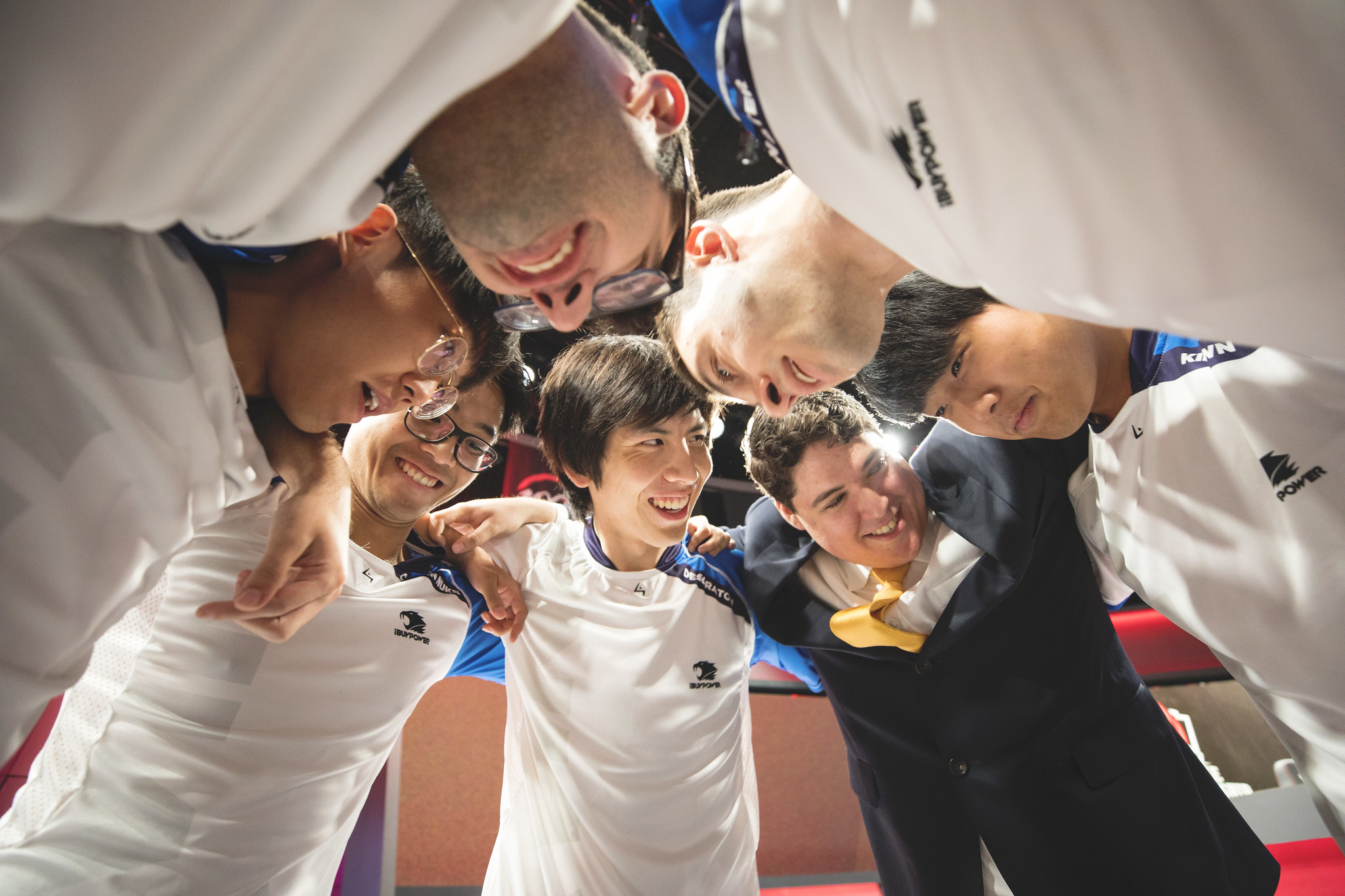
Taking it seriously
It's no secret that attending college in the United States is expensive. Finding grant or scholarship funding to lessen or avoid student loans is crucial for many Americans. Even if some parents don't understand all the esports hype, free college money is free college money.
"When I told my parents I can get a pretty nice scholarship at a good school, they were all about it," said Welling. "A lot of parents would probably conclude that it's a waste of time, so it feels great that I was able to turn my hobby into something valuable and transition that into getting an education.
"We were in Atlantic City for the finals of a tournament series that we were participating in called CSL, and we actually won that tournament. My mom sent me a video of her and my dad jumping up and down yelling and screaming as we were finishing the game. That was just amazing."
For UCI Overwatch player Zuhair Taleb, who also used to play on Apex Legends team Tempo White, his parents understand to an extent. He points to his traditional Yemeni upbringing as a source of his parents' views, but says they started to come around when he became the first Yemeni pro esports player and when he got a varsity esports scholarship. It was an exciting thing for him to share not only with his family in California, but also with his family and friends back in Yemen. They were all proud of him. Still, his parents try to nudge him in a more traditional direction from time to time and want him to finish school before he tries to go pro.
"I wouldn't be surprised if, hopefully, I did become pro and I won something," said Taleb, "and then [my parents would say] 'Congratulations! Are you going back to school now?'"
"My parents said they have no intention of watching me play."
Not every player has supportive parents like Welling and Taleb's, and Adam Farm, head League of Legends coach at RMU, says he sees parental apathy often. "I can't count how many times I've asked players if their parents are going to be watching them play, and they said, 'My parents don't even know what's going on.' They say, 'My parents said they have no intention of watching me play. They have no idea even if they were to watch me play what they are seeing, so I don't even try to include them. I don't even try to talk to them.'"
Parents generally can sit down at their kid's basketball or football game because they know the rules, even if they don't play the sport themselves. Esports, on the other hand, can create rifts, because there is a larger learning curve to an esports game, especially if they don't play videogames at all.
And then there's the issue of scholarships being dependent on the student participating as a player. Traditional sports scholarships, for instance, are tied directly to playing the sport, not anything adjacent to it. Should a student decide they no longer want to play that sport, they lose their scholarship, and with that a chunk of their tuition funds.
However, all three universities I spoke with say they offer students a chance to work in the esporta arena, and on the teams, in different capacities. James Bates, head coach for League of Legends at UCI, and Alison Le, the team's manager, are both students at the university, and are paid for their work with the team. Alex Jiang, president of the League of Legends club at Berkeley, is also a lead student assistant in the esports center where he helps manage day-to-day operations and plans career networking events for students interested in getting involved with videogames at the non-player level.
"Having that career tangent or option anywhere within that range is very important to selling it to those people that are against it," Jiang said.
RMU's esports department has been able to go even further and offers scholarships to non-players.
"If you're coming in for business, marketing, or design, you can get a degree along with the potential scholarship not to play games but to work inside of the esports landscape," said Wisnios, RMU's esports executive director. He's been working for the last year to expand those types of scholarships offered.
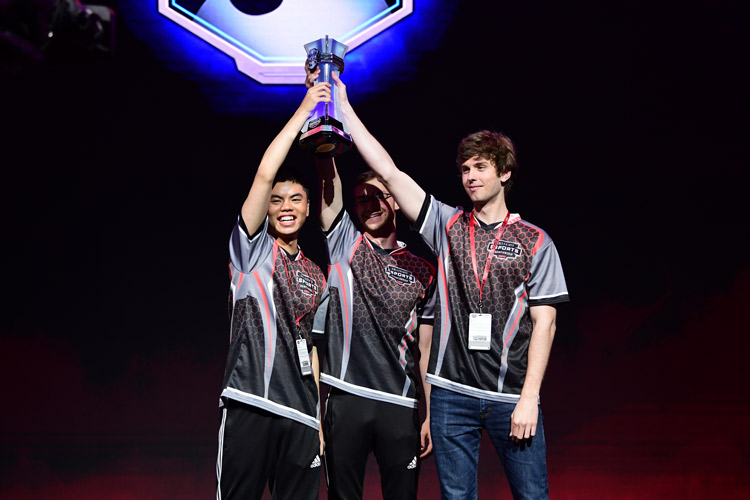
Structuring a sports-based scholarship in this way gives students the opportunity to both pursue a degree as well as gain experience working within their hobby in a professional capacity. It shows universities that working in the videogame industry is a viable career path with longevity, and that it's worth taking seriously.
Going pro as an esports player usually draws more ire from skeptics than anything else. The odds of getting drafted to a pro team right out of college are slim—less than two percent of college football players will play in a major league, for instance. For esports, that statistic could be even smaller, but we don't have decades of data to show that, and the industry hasn't been around long enough in its current state for us to gauge how stable it will be in the long run.
There's still something to be said for that dream, though. Taleb told me that the great training he received at UCI is a big reason why he not only went pro in Apex Legends, but also why he wants to take a break from college to pursue going pro in Overwatch. He's still young enough to try, he points out. If it doesn't work out for him, he'll return to school and finish.
For Welling, his priority is to finish college. "I think that if you want to dedicate yourself to collegiate esports, your number one goal should be to finish school. If you just happen to stand out enough that you get an offer from a professional team, that's amazing."
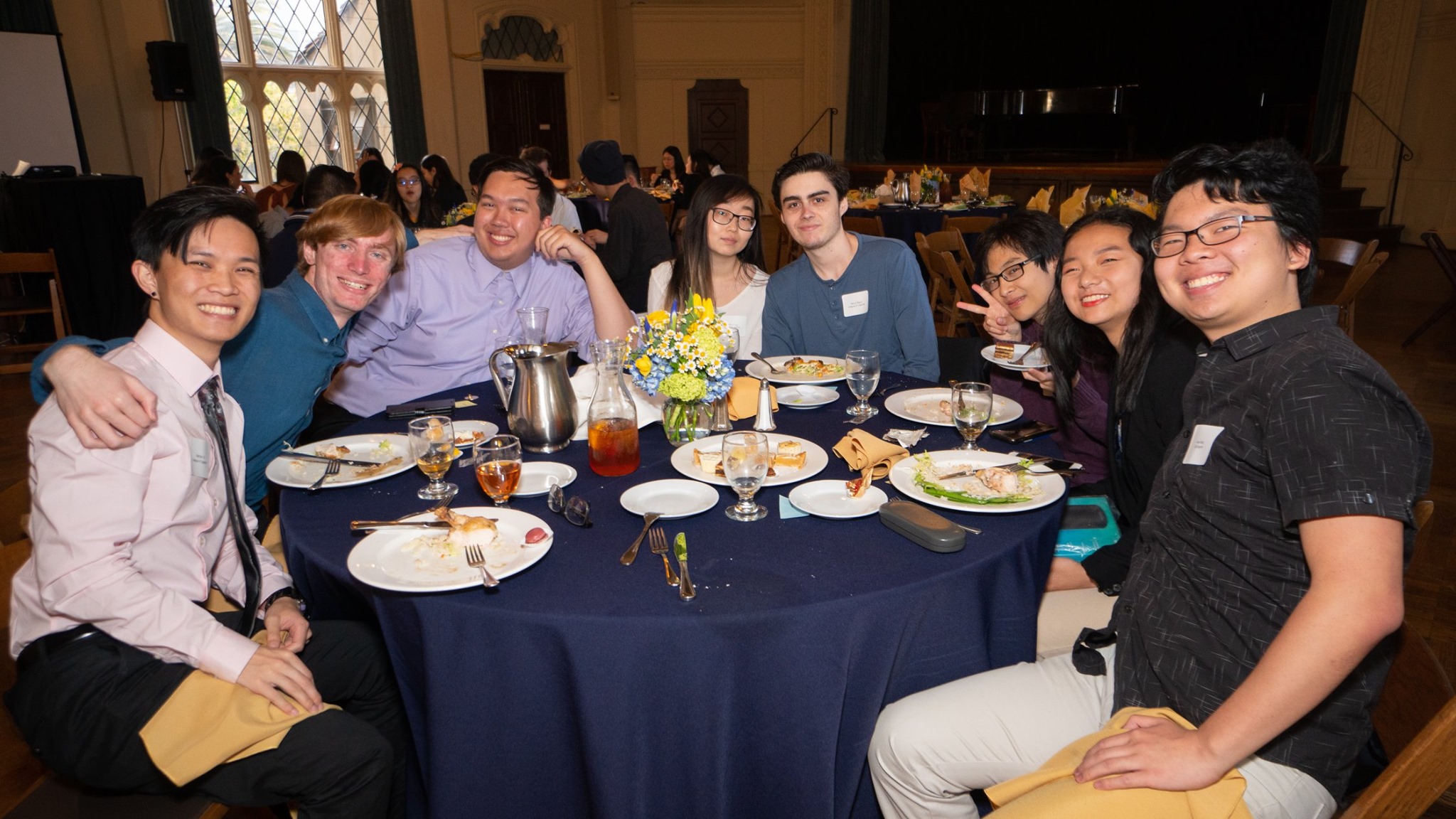
Creating a welcoming environment
Recruiting more women onto collegiate esports teams to comply with Title IX—which requires that women and men be provided equal opportunities to participate in sports, and equal access to athletic scholarships, equipment, game scheduling, coaching, housing, and so on—isn't as simple as sending out invitations. Women have to feel comfortable enough just to walk through the door, and it's up to the people on the other side, who are mostly men, to start building that trust. For Chiang, UCI's esports assistant director, growing up as a girl in the online gaming world meant hiding her identity.
"I had a fake name. I pretended I was a 19-year-old boy," she said. "That's how I gamed for a very long time, because I was under-age and I was not comfortable being who I was. Obviously that's different for me now."
It just takes a glance at the professional esports landscape to see the scope of the problem. For instance, Hafu Chan, one of the best Hearthstone players in the world, has spoken candidly about the abuse she has received in the past. A former World of Warcraft pro, she stopped playing competitively because of incidents including a team being named "Gonna Rape Hafu At Regionals" in a WoW Tournament Realm.
I asked everyone the same question: Is this something that can be changed with the current generation? They all had similar responses: Yes, but real change takes time, and the way to do that is to have these important conversations with high-schoolers and younger kids to make sure they're not bullying or harassing people who don't fit their vision of the 'gamer' identity. RMU, Berkeley, and UCI all have programs dedicated to inclusion and diversity, so they expect all of their esports players live up to the same principles on and off the 'court.'
"We've tried to actively seek out female talent with mild success," said Welling. "We have four girls on our Smash team at the moment, which is great. But with the program trying to seek out female talent, it can still be really difficult because they have to want to be a part of it, which is obviously the problem. They don't feel welcomed and included a lot of the time."
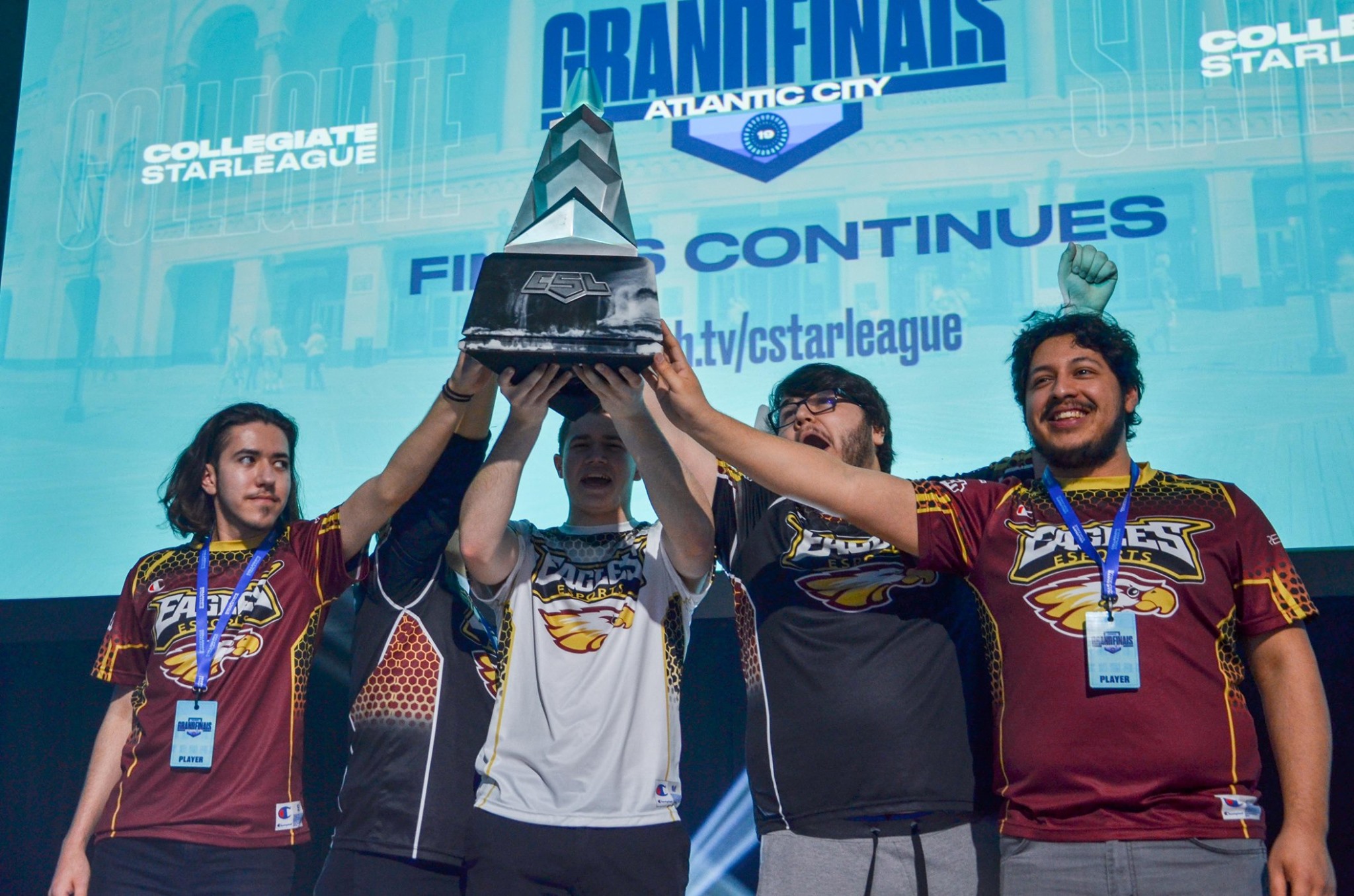
Growing pains
Since RMU became the first to offer an esports scholarship in 2014, more than 130 US colleges have followed suit. The National Association of Collegiate Esports (NACE), which officially formed in July 2016, has been a crucial part of this expansion, collaborating with these colleges to offer $15 million in scholarships and aid every year to more than 3,000 student athletes. But while it might seem easier to start a full-fledged, collegiate esports program today, many prospective esports programs run into the same hurdles that have plagued programs for years.
While these esports programs still have a ton of things they want to streamline and expand, there are the usual growing pains that come with starting any organization from scratch. For Bates and Le from the UCI League of Legends team, it took them a while to get comfortable in their positions.
"The person who had my position before me was there for two and a half months," said Bates. "So I never really got any training at all. They just told me one day, 'Hey, you're head coach now.'"
$15 million in scholarships and aid every year to more than 3,000 student athletes.
For Le, her predecessor was in the same position for a year, but there was still no official job description on paper. "The only thing I was taught was how to run scrimmages, practice games, but everything I had to figure out as I went along," she said.
However, now that both have been in their positions for a year or more, each feels more settled and confidant in the roles. "I have a better grasp on the things that I think James wants for our players, and we didn't have team meetings before, but then we gradually came to have them, and I think that works out really well now," said Le.
Players feel just as much uncertainty as the staff; Taleb candidly talked about getting put onto UCI's Overwatch team knowing they were taking a risk on him.
"I thought that I had the mechanical ability to compete, but I knew for sure that I did not have the teamwork," he said. "My coach was worried about my personality, worried that I would bring a toxic environment."
Taking advice from his coaches to heart, Taleb said his teamwork skills improved a lot after cutting down on his cursing at other players in voice chat.
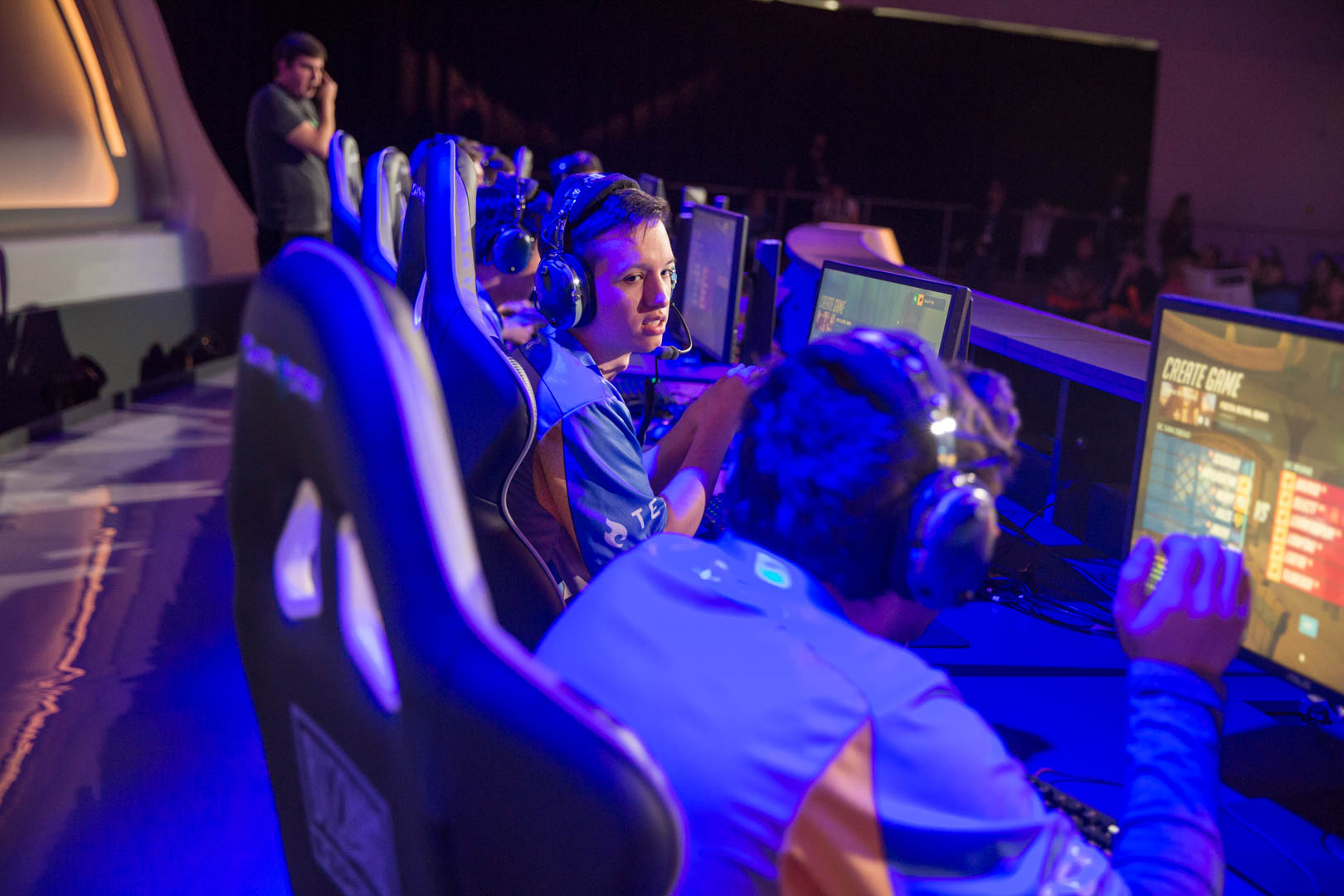
For now, many colleges seem hesitant to take a financial risk on something they don't understand, or on something they don't believe has longevity. But RMU, Berkeley, and UCI have proven that, with the right support system, there's potential for esports programs to benefit more students in the future.
Player sponsorships and prize money are two of many issues that could present a barrier to the growth of college esports—it's a big issue in traditional college sports as well—but if the esports industry continues to mature on the whole, college esports will surely grow up with it. What form that ultimately takes depends on a large number of variables, not the least of which is simply the perception of videogames and esports among parents, school administrators, and faculty. For now, college esports pioneers are figuring it out as they go.


